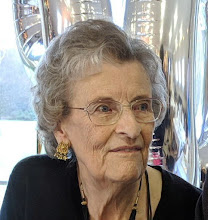The Medical Assessment Unit was a further extension of A&E, a mixed ward of 4-bed bays where patients were held for short-term stays, or until a bed could be found for them on a more appropriate ward. As such, it saw patients come and go with great frequency, at any time of the day or night, with every different kind of illness, and of every age, though mostly geriatric. They never found a spare cardiac bed for me, and I spent two weeks there waiting for an angiogram, becoming a sort of fixed point, someone the staff could get to know a bit, and occasionally chat to in the quieter hours of night duty.
During the time that I was on that ward, the remaining three beds in my bay had a succession of no less than 19 other patients, both men and women. I cannot now remember them all, though many of them made an impression at the time. But I do remember that early on in my stay, in the bed opposite mine, there were two deaths within 24 hours.
I remember too the old man of about the same age and frailty as my husband was at the end - so thin, so subdued and quiet for most of the time. But there were moments when he would suddenly discard his oxygen mask and start ripping off all his monitor leads, or take off all his clothes and, if admonished, start throwing things off his table. I came back from a trip to the bathroom one time to find the floor of the bay covered in Maltesers! There was a certain bravura about such behaviour, a courageous defiance with which I had some sympathy. One could feel that he was hanging on to a sense of self-determination despite his diminished physical state. He certainly got the attention of the nurses!
Rather different from the pathetic, lost old woman lying next to me whose dementia, combined with extreme deafness, left her at the mercy of family and carers. She arrived on the ward from A&E at much the same time as I did, and was constantly worrying about the whereabouts of her handbag, which, she said, had a lot of money in it. She would speak of it to every nurse and other professional who came her way, but her enquiries were ignored or fobbed off with delaying words or excuses. Then her granddaughter visited, a loving and attentive young woman who spoke sympathetically to her Gran - until, that is, she was asked about the handbag. “I just need to know where it is” said the old lady plaintively. “You don’t need to know anything, Nana, you just need to leave everything to us” came the reply. Well meant, no doubt, but of one thing I am sure: we all have the right to remain in control for as long as we are aware enough to do so, and every woman’s life depends on her handbag! Why could no-one take the trouble to say reassuringly “I expect your family took it home, dear” - which, when her daughter visited, turned out to be the case. Her dignity was further assaulted when the doctor doing the rounds approached her with the remark “I am told you have some dementia”. This, of course, she roundly denied.
Then there was the 84-year-old man, upright and dapper and still quite a 'dish', who came in with a bad asthma attack. He never stopped fretting to go home, where he had an 89-year-old wife with the beginnings of dementia who depended on him for her care. At home he had his own nebulizer with which he was accustomed to manage his asthma attacks, in addition to his caring responsibilities. In the hospital there was a nebulizer plugged in beside his bed in case of need, but it had been disconnected while some other equipment was plugged in for the use of the neighbouring patient. This made him nervous, which I could understand, as I had had to call a nurse for him once already when an attack began with great suddenness. He was unable to plug it in himself, so he asked a nurse to do so. The nurse kept telling him he needn’t worry, because if he had another attack one of the staff would come and fix it for him. No matter how much he explained that he needed to have it under his own instant control, the nurse would not take the point, completely disregarding the fact that it could often take many minutes for the staff to answer the call bells. This time I could not forbear saying my piece in an attempt to get the thing connected for him, which it eventually was. When later he had another attack, this patient tried to bribe a nurse not to write it up in his notes, so that he would still be able to go home next day to his wife. Of course she did, but the doctor chose to overlook it and sent him home anyway, to his great delight and mine - (he was actually rather a bore, and chose me to unload his complaints onto).
[More to follow]
Saturday, March 01, 2008
Subscribe to:
Post Comments (Atom)




3 comments:
Oh how awful for you to be amongst all that lot. But I really do feel for all of them. There seems to be no dignity at all in wards for the elderly. And is it such a good idea to have male & female patients together? I think not really.
Anyway, the main thing is that you are up & about again & fully recovered.
I'm quite fed up with hearing nursing staff described as angels. Many of those I've come across in the last few years - and I've seen enough - have been far from it. In the last year S has been on the receiving end of two grossly incompetent and life threatening examples and she has witnessed many more, one very similar to your old gent's one that resulted in a death because of the arrogance of one sister. Those patients who self medicate are often completely derided as incompetent for some reason.
Typical of you Judith, to be writing so profusely about your hospital experience! You can't keep a good woman down! As a former nurse I read your piece and the responses with interest.
Nursing really isn't what it used to be - but I remember many of the "old school" saying the same thing when I was 18 and had just started training! Even so, many older nurses today blame the change in the way nurses are trained nowadays. It's not training on the job any more, it's a university course without university holidays, and the students seem to be being trained to become managers rather than nurses. The actual nursing care falls more and more into the hands of the untrained, and very low paid, "Health Care Assistants".
It's not that they don't care, but they don't have the background knowledge which the trained staff used to be taught. That background knowledge helps you to see beyond the initial problem and assess each situation appropriately.
It's all very sad.
Post a Comment